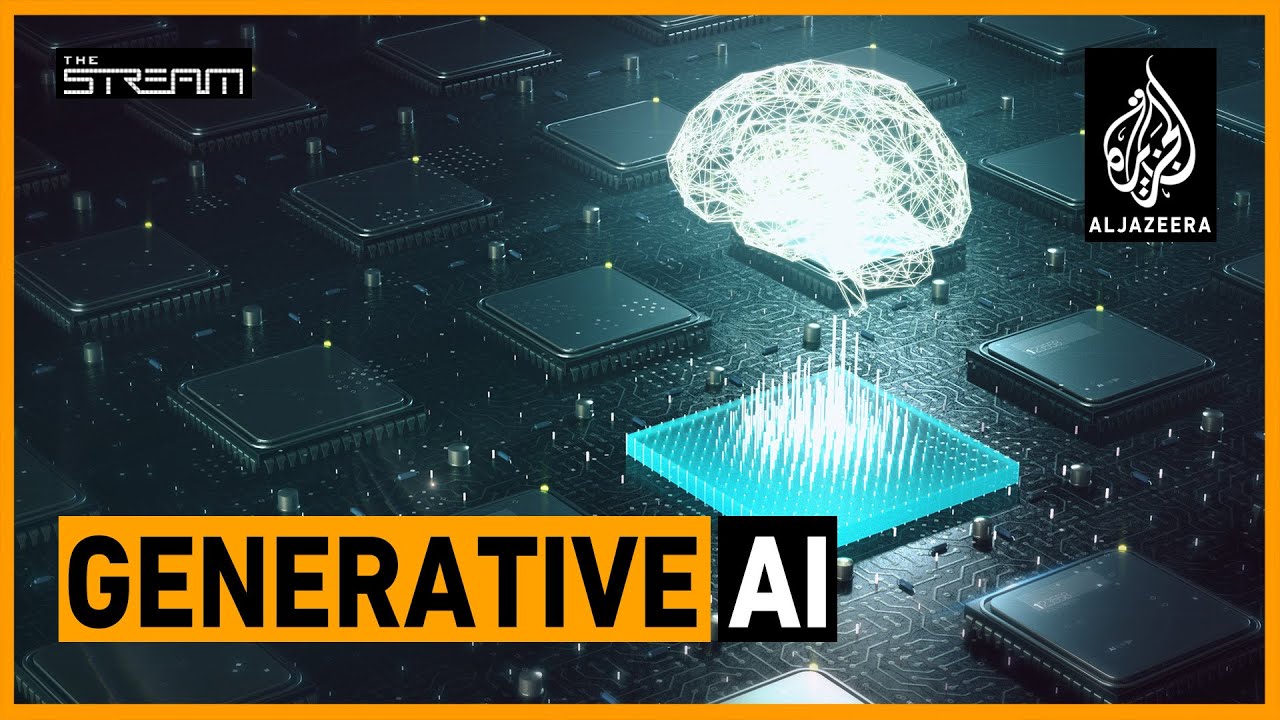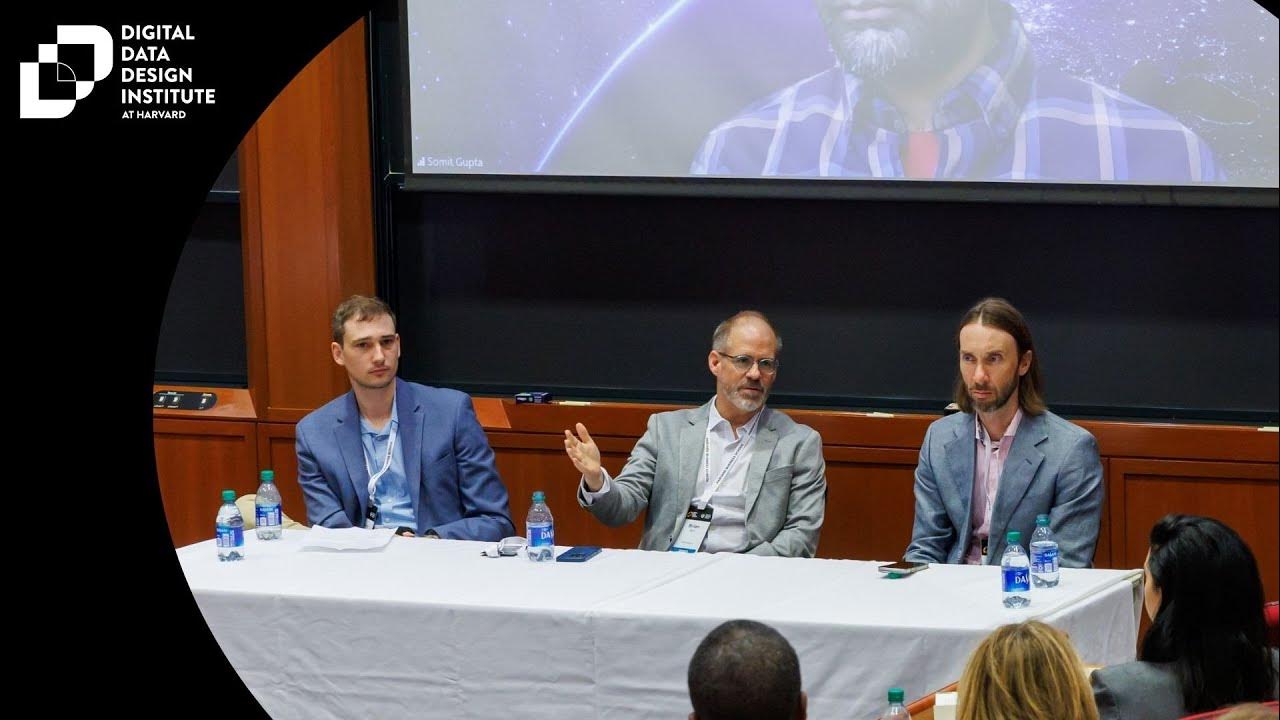AI AND THE GLOBAL SCALE
Summary
TLDRIn this insightful panel discussion, experts Karma and Mark Rotenberg delve into the complexities and implications of AI regulation. They explore the EU's pioneering AI Act, its global impact, and the challenges of balancing safety, fairness, and innovation. The conversation highlights the necessity for transparency, accountability, and the protection of fundamental rights in the rapidly evolving AI landscape, emphasizing the importance of global coordination to harness AI's potential while mitigating its risks.
Takeaways
- 🧠 Artificial Intelligence (AI) has evolved from early rule-based systems to large language models and generative AI, replicating human decision-making and creative processes.
- 🌐 The European Union is leading the way in AI regulation, with the AI Act setting precedents for technology regulation by focusing on high-risk use cases and ensuring technology neutrality.
- 📚 The AI Act emphasizes the importance of transparency, explainability, and the need for AI systems to not operate as 'black boxes', especially with large language models.
- ⏳ The AI Act includes a timeline for compliance, with different phases for various types of AI applications, from prohibited uses to generative AI systems.
- 🚫 Prohibited uses under the AI Act include social scoring, biometric classification based on sensitive personal attributes, and mass surveillance, aiming to protect human rights.
- 🔄 The regulation aims to be future-proof, acknowledging the rapid pace of AI development and the need for adaptable yet enduring guidelines.
- 🌍 The impact of the AI Act is expected to be global, influencing companies outside the EU to comply with its standards to access the European market.
- 🤖 Concerns about AI's safety and existential risks have shifted the focus from fairness to reliability and trustworthiness, though both are critical.
- 🏛️ The AI Act and similar regulations are not just technical standards but also moral ones, reflecting European values and potentially influencing global AI ethics.
- 🌟 The future of AI is not predetermined and depends on the choices and regulations implemented today, highlighting the importance of proactive and responsible governance.
- 📈 While risks are significant, the opportunities AI presents for global education, public health, and other sectors are immense, necessitating global coordination and governance.
Q & A
What is the definition of artificial intelligence as described by Mark Rotenberg?
-Artificial intelligence, as described by Mark Rotenberg, started as rule-based decision trees in the early days, akin to what a doctor or engineer might do. Today, it involves using large amounts of data to anticipate outcomes, such as translations, through large language models and generative AI, essentially replicating human decision-making and creative processes.
Why has the European Union taken a leading role in regulating AI?
-The European Union has taken a leading role in AI regulation because there was no precedent for regulating such a technology. The EU wanted to be technology-neutral, focusing on regulating high-risk use cases of technology rather than the technology itself, similar to safety regulations in other industries like automotive or aviation.
What is the significance of the AI Act in the European Union?
-The AI Act in the European Union is significant because it sets a precedent for technology regulation globally. It addresses the unprecedented impact of AI on society and the economy, includes a risk matrix for product-based regulation, and emphasizes transparency, explainability, and fundamental rights impact assessment.
What are some of the challenges faced during the regulation process of AI in the EU?
-Challenges during the AI regulation process in the EU include maintaining technology neutrality, ensuring the regulation is future-proof given the rapid pace of AI development, and balancing safety and fairness concerns. Additionally, the process involves coordination among the Commission, Council, and Parliament.
What is the status of the AI Act implementation?
-The AI Act has been approved and published in the European Journal. Countries have three months to decide on the supervision of fundamental rights, six months to remove prohibited AI applications from the market, and 18 months for high-risk AI systems to be fully compliant.
What are some of the key provisions of the AI Act?
-Key provisions of the AI Act include seven prohibitions on practices like social scoring and subliminal manipulation, requirements for transparency in generative AI, obligations for developers to ensure safety and compliance before market release, and the need for a fundamental rights impact assessment.
How does the AI Act address the issue of generative AI and transparency?
-The AI Act addresses generative AI by requiring transparency. It mandates that AI-generated content must be clearly marked as such, so users are aware that the content is produced by AI and not by a human, ensuring users have the necessary information to assess the content.
What is the current state of AI regulation in the United States?
-In the United States, AI regulation is still in the early stages, with no clear path toward formal regulation at the federal level. However, the Biden administration has issued an executive order setting rules for safe, secure, and trustworthy AI within federal agencies, and there is bipartisan support for multiple bills that would govern AI.
How does the AI Act consider the balance between safety and fairness in AI regulation?
-The AI Act aims to balance safety and fairness by including provisions that address both the potential risks of AI and the need for equitable decision-making. It emphasizes the importance of not letting the safety agenda displace the fairness agenda, ensuring that AI systems do not perpetuate bias or harm certain groups.
What are some of the global implications of the AI Act in the EU?
-The global implications of the AI Act include the potential 'Brussels effect,' where companies outside the EU may choose to comply with the Act to participate in the EU market. It also contributes to the development of global standards and norms for AI governance, influencing international discussions on AI ethics and regulation.
What role does the AI Act play in promoting global consensus on AI governance?
-The AI Act plays a role in promoting global consensus by setting a moral standard for AI use, which could influence companies worldwide, even if they are not legally bound by the Act. It also contributes to the discourse on the need for global coordination and governance to address the cross-border impacts of AI technologies.
Outlines

Cette section est réservée aux utilisateurs payants. Améliorez votre compte pour accéder à cette section.
Améliorer maintenantMindmap

Cette section est réservée aux utilisateurs payants. Améliorez votre compte pour accéder à cette section.
Améliorer maintenantKeywords

Cette section est réservée aux utilisateurs payants. Améliorez votre compte pour accéder à cette section.
Améliorer maintenantHighlights

Cette section est réservée aux utilisateurs payants. Améliorez votre compte pour accéder à cette section.
Améliorer maintenantTranscripts

Cette section est réservée aux utilisateurs payants. Améliorez votre compte pour accéder à cette section.
Améliorer maintenantVoir Plus de Vidéos Connexes

Will generative AI change how we live? | The Stream

How To Grow A Newsletter From 0 to +250,000 Subscribers in 4.5 months

Citizens United v. Federal Election Commission | US government and civics | Khan Academy

Experimentation with Generative AI

Nudgestock 2023 - Human Beh(AI)viour - Keith Dear, Katie King, Chris Graves & Justin Ibbett

Panel Discussion Including All Speakers
5.0 / 5 (0 votes)
